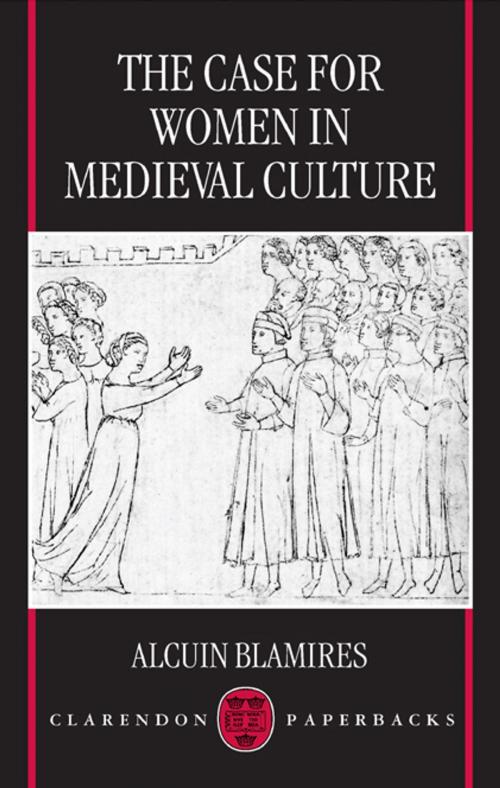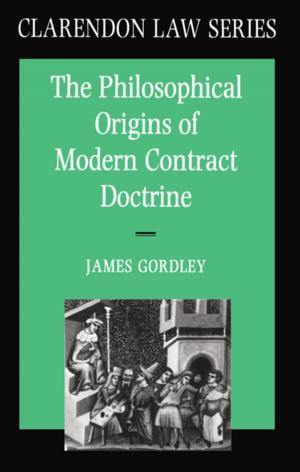The Case for Women in Medieval Culture
Fiction & Literature, Literary Theory & Criticism, British, Nonfiction, Social & Cultural Studies, Social Science| Author: | Alcuin Blamires | ISBN: | 9780191037290 |
| Publisher: | Clarendon Press | Publication: | August 27, 1998 |
| Imprint: | Clarendon Press | Language: | English |
| Author: | Alcuin Blamires |
| ISBN: | 9780191037290 |
| Publisher: | Clarendon Press |
| Publication: | August 27, 1998 |
| Imprint: | Clarendon Press |
| Language: | English |
Misogyny is of course not the whole story of medieval discourse on women: medieval culture also envisaged a case for women. But hitherto studies of profeminine attitudes in that periods culture have tended to concentrate on courtly literature or on female visionary writings or on attempts to transcend misogyny by major authors such as Christine de Pizan and Chaucer. This book sets out to demonstrate something different: that there existed from early in the Middle Ages a corpus of substantial traditions in defence of women, on which the more familiar authors drew, and that this corpus itself consolidated strands of profeminine thought that had been present as far back as the patristic literature of the fourth century. The Case for Women surveys extant writings formally defending women in the Middle Ages; breaks new ground by identifying a source for profeminine argument in biblical apocrypha; offers a series of explorations of the background and circulation of central arguments on behalf of women; and seeks to situate relevant texts by Christine de Pizan, Chaucer, Abelard, and Hrotsvitha in relation to these arguments. Topics covered range from the privileges of women, and pro-Eve polemic, to the social and moral strengths attributed to women, and to the powerful modelsfrequently disruptive of patriarchal complacencypresented by Old and New Testament women. The contribution made by these emphases (which are not to be confused with feminism in a modern sense) to medieval constructions of gender is throughout critically assessed, and the book concludes by asking how far defenders were controlled by, or able to query, assumptions about what was natural (and therefore imagined inflexible) in gender theory.
Misogyny is of course not the whole story of medieval discourse on women: medieval culture also envisaged a case for women. But hitherto studies of profeminine attitudes in that periods culture have tended to concentrate on courtly literature or on female visionary writings or on attempts to transcend misogyny by major authors such as Christine de Pizan and Chaucer. This book sets out to demonstrate something different: that there existed from early in the Middle Ages a corpus of substantial traditions in defence of women, on which the more familiar authors drew, and that this corpus itself consolidated strands of profeminine thought that had been present as far back as the patristic literature of the fourth century. The Case for Women surveys extant writings formally defending women in the Middle Ages; breaks new ground by identifying a source for profeminine argument in biblical apocrypha; offers a series of explorations of the background and circulation of central arguments on behalf of women; and seeks to situate relevant texts by Christine de Pizan, Chaucer, Abelard, and Hrotsvitha in relation to these arguments. Topics covered range from the privileges of women, and pro-Eve polemic, to the social and moral strengths attributed to women, and to the powerful modelsfrequently disruptive of patriarchal complacencypresented by Old and New Testament women. The contribution made by these emphases (which are not to be confused with feminism in a modern sense) to medieval constructions of gender is throughout critically assessed, and the book concludes by asking how far defenders were controlled by, or able to query, assumptions about what was natural (and therefore imagined inflexible) in gender theory.















